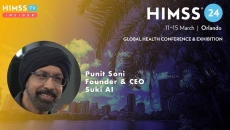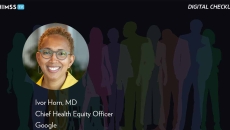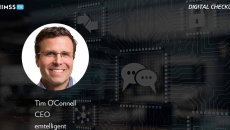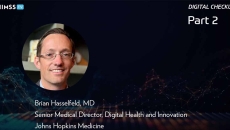Artificial Intelligence
HIMSS24
Guardrails can't be fully implemented until AI is defined, says Patricia MacTaggart, program director and teaching instructor at George Washington University, who is a 2024 Changemaker Award recipient.
HIMSS24
Suki recently joined forces with Amwell's Converge telehealth platform, says Punit Soni, CEO & founder of Suki AI.
HIMSS24
The Coalition of Health AI (CHAI) is a consensus-driven set of standards among over 1,300 organizations, says CHAI CEO Dr. Brian Anderson.
James McHugh, managing director at Berkeley Research Group, reveals quite positive feelings among provider organization executives on deploying artificial intelligence in the next three years.
There's no current standard to ensure that data that's used in AI reflects the diversity of people around the world, says Dr. Ivor Horn, Google's chief health equity officer.
HIMSS24
Patient relationship management means having a communication channel across the continuum of care, says Don Thompson, head of marketing at TeleVox.
NLP is not new but, combined with large language models, is able to further increase performance and the number of use cases, says Dr. Tim O'Connell, founder and CEO of medical NLP company emtelligent.
HIMSS24
Medical device manufacturers are often late in making a patch available, allowing perpetrators to get a foothold into the system, says Richard Staynings, chief security strategist at Cylera.
HIMSS24
DeepScribe is attuned to individual preferences for bullet points or longer sentences, so the note sounds like what the physician wrote, says cofounder, president and COO, Matthew Ko.
One of the main benefits is the ability during a clinical interaction to take the hands off the keyboard, look directly at the patient and have a conversation, says Dr. Brian Hasselfeld, senior medical director of digital health and innovation at Johns Hopkins Medicine.









